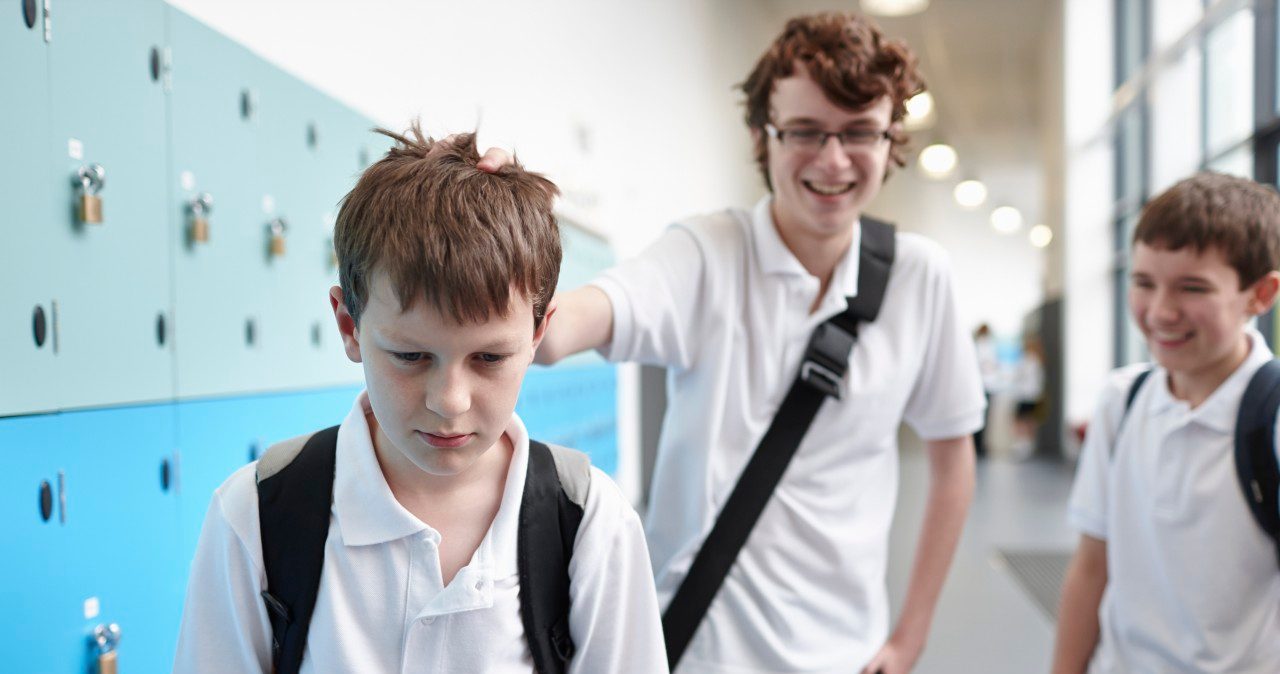Bullying May Be Worse than Child Abuse

Victims may suffer from anxiety, depression, suicidal tendencies, and even physical ailments. Here’s how to deal with bullies in your child’s life.
Jamey Rodenmeyer, 14, was brave enough to talk publicly about being bullied constantly at school and online because he was openly gay.
A little over a year later, at his breaking point, he committed suicide. In a now eerie video he posted on YouTube, he described years of taunting and “hate.”
YOU MIGHT ALSO LIKE: How to Spot — and Stop — Bullying
Bullying versus child abuse
As twisted as it sounds, a child may be relatively better off being abused by an adult than being bullied by childhood peers in the long run, according to a study, the first to examine whether bullying alone can cause psychological problems later in life.
Both bullying and what the study authors call “maltreatment,” or abuse, can result in long-term mental health problems, and in many cases may be on a par with one another. But the study also found that bullying can be worse than abuse in some cases.
What is bullying?
As has been documented and reported exhaustively, bullying is far from the “harmless” game it was once considered. It can make kids reluctant to attend school, and leads to truancy, headaches and stomach pains, reduced appetite, shame, anxiety, irritability, aggression, and depression.
With promotion from the federal government to non-profit organizations and school districts (plus a groundbreaking movie), bullying has been exposed as a brutal form of childhood aggression. It requires a full-out, coordinated effort to reduce, if not stop, it, and has long-term effects and consequences – not only for the victims but even for the bullies themselves.
The study results support the need to treat bullying as a serious public health problem.
About 28 percent of students ages 12 to 18 report being bullied at school during the school year. One in three U.S. students say they have been bullied at school, where most bullying takes place. More than 70 percent of young people have reported seeing bullying in their schools.
The effects of bullying
Lead study author Dieter Wolke, a professor of psychology at the University of Warwick in the UK, said the research team was looking for mental health problems such as anxiety, depression, or suicidal tendencies. He added that children who were bullied were more likely to have mental health problems than those who were abused.
The researchers used the results of two previous large, long-term studies that included thousands of children, and examined levels of child abuse and bullying in England and the U.S. When both populations were considered together, children in both countries were more likely to have mental health effects from bullying.
Bullied English children were 70 percent more likely to develop depression or harm themselves than were children who suffered from child abuse. American children were more likely to have clinical anxiety if they were bullied, compared to being abused.
“Since bullying is frequent and found in all social groups, and current evidence supports that bullied children have similar or worse long-term mental health outcomes (compared to) maltreatment, this imbalance requires attention,” the reseachers wrote. “Future studies of maltreatment should take into account the effects of peer bullying.”
How to deal with bullies
Parents and teachers who know certain children have been bullied are being advised by organizations to take action early through a variety of approaches and tools that target the reduction of bullying, and provide mental health support for the victims.
Those include learning how to talk about bullying, taking preventive measures at school, working in the community, and using bullying prevention training modules.
Children’s book author Donna Frantz, who has written on many subjects including bullying, believes truly harmful bullying starts in middle school. “Before that, kids are like puppies – instinctive, playful, sometimes annoying, but not skilled enough to be mean-spirited,” she says.
She adds that pre-teen and older children can benefit from “fighting back,” a term she uses loosely and does not include physical violence. It tells bullies that potential victims will not accept being treated badly, and gives bullies some food for thought on their own behavior, Frantz says.
Children who are taught how to stand up for themselves at a young age are not likely to become victims later on, she adds.
The national “Stop Bullying Now!” campaign urges everyone, bullied or not, to take a stand and get involved.
Whether you’re a parent, teacher, or a youth center employee, “(you) have to let children know that not only should they stand up and get help from a significant adult, but they also need to stand up for children they see being bullied,” said Barbara Thompson, spokesperson for the Department of Defense. Children who move often with their military parents are prime targets for bullying.
“You can’t be an innocent bystander even though you’re not being bullied or are not the bully,” she added. Bystanders actually hold the key to putting an end to bullying by refusing to behave passively, which gives a bully an audience and tacit approval.
When your child or someone close to you is being bullied, you have choices and resources from which to draw. The first step is to make sure you understand what bullying is and what it is not, the warning signs of bullying, and steps to take for preventing and responding to bullying.
If you feel you have done everything you can to resolve the situation and nothing has worked, or someone is in immediate danger, there are ways to get help.
Updated:
February 27, 2020
Reviewed By:
Janet O’Dell, RN